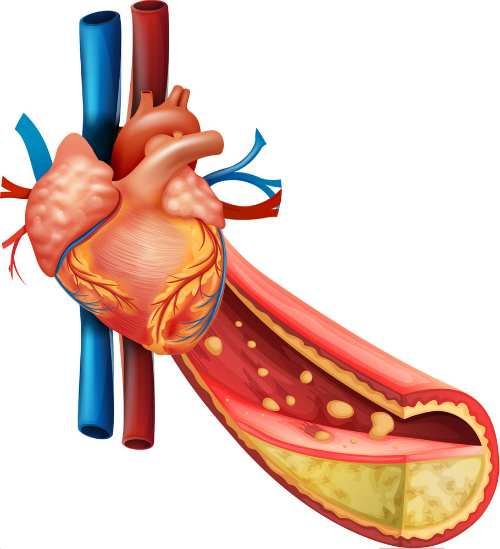Increased performance, reduced inflammation, heightened mental alertness and muscle fullness are all associated with beetroot, either as a whole food or in supplement form.
Inside beetroot, you’ll find an element called nitric oxide. It’s nitric oxides role to increase our performance and work rate, while at the same time, reducing our recovery time.
Amino acids such as L-Carnosine, L-Valine, and L-Leucine work in a similar way to nitric oxide. All of these amino acids have a positive effect on our performance and recovery.
Beetroot can even make your brain work at a much quicker rate, while assisting in the recovery from oxidative stress. More on this throughout the article.
Continue reading to learn the many benefits surrounding beetroot (nitric oxide) and how it works in the body.
Table of Contents
Benefits To Beetroot
Beetroot is an amazing vegetable which has the ability to increase nitric oxide levels in the body, allowing for enhanced physical performance for athletes and novice gym goers – or anyone looking to improve their endurance and power output. (01)
Beetroot is often used in supplement form as it’s easily facilitated as a precursor of nitric oxide.
But wait a minute, doesn’t NO production happen naturally in the body anyway? Yes, it does. It happens via the catabolism of arginine by the enzyme NO synthase.
Okay, now you’re asking yourself… “what if I want to give myself a performance boost? can I just take beetroot? and will I still have the ability to improve NO levels?”
Yes, you absolutely will. Let me explain.
Apart from the above-mentioned catabolism of arginine (which is a natural process in the body), an alternative way you can increase NO levels is by supplementing with inorganic nitrate NO3− in other words, beetroot.

Increased Stamina
A study which took a group of cyclists and gave them (~10.9 mmol NO3−) 180 minutes before a cycling test saw huge improvements in their performance. The study consisted of 15 seconds pedaling at 170 VO 2 max, followed by 30 seconds of rest periods.
The results? The cyclists improved by 20% in their number of repetitions throughout the total work output in the time allocated. (02)
Also, red blood cell concentrations showed an increase in micro vascularization, which is an indicator of oxygen exchange in the muscle. This means, the muscles were able to receive more oxygen during exercise compared to not using the beetroot supplement.
It doesn’t stop there. As the nitric oxide contained inside beetroot increased improvements on a muscular level, it may also have increased the power of oxidative phosphorylation during rest periods. The oxidative phosphorylation is the use of nutrients to create energy in the mitochondria in the form of ATP.
“Oxidative phosphorylation is the metabolic pathway in which cells use enzymes to oxidize nutrients, thereby releasing energy which is used to produce adenosine triphosphate.” (03)
Taking these test results into consideration, we can assume the body also increases the phosphocreatine when supplementing with beetroot. Therefore, using a beetroot supplement may delay the depletion of phosphocreatine stores in the muscle, which can only benefit recovery periods – allowing for more work to be carried out during working sets. (04, 05)
Increases Muscle Volume
As we now know, beetroot contains NO3, which then gets converted to the usable form of NO in the body. Also, if you weren’t already aware, one of the benefits of having more nitric oxide in the blood is enhanced muscle volume, especially after completing resistance training, such as weightlifting or bodybuilding.

Nitric oxide increases vascular volume by allowing for more oxygen to be filled into the veins. An article which looked at the composition of NO in the body in terms of improving vascularity said:
“NO is now recognized as a key determinant of vascular health, exerting antiplatelet, antithrombotic, and anti-inflammatory properties within the vasculature”. (06)
Richard C Jin and Joseph Loscalz from the Cardiovascular Division, Department of Medicine, Harvard Medical School states in their findings that NO is a key element in regulating ‘vascular tone’.
This means that nitric oxide can either increase or decrease vascularity depending on the NO levels in the body. But why is this important?
Reduces inflammation
Nitric oxide, apart from giving you a great muscle fullness after exercise, or increasing endurance levels by allowing for more phosphocreatine to remain in the muscles for extended performance, it can also aid as a “primary activator of endogenous fibrinolysis by converting the inactive proenzyme plasminogen to the active enzyme plasmin.” (07)

Fibrinolysis is; “the enzymatic breakdown of the fibrin in blood clots.” Meaning, nitric oxide can cleanse the veins of blood clots or other harmful deposits that may have built up due to oxidative stress, or a diet lacking in the right nutrients, smoking or excessive alcohol consumption.
Beetroot juice can also reduce blood pressure, therefore it may prove beneficial for those suffering from cardiovascular disease.
Healing Effects Of Beetroot
Beets contain something called betaines (a naturally occurring amino acid compound also known as trimethylglycine, or TMG).
These betaines reduce the concentration of homocysteine, which is a non-proteinogenic α-amino acid linked to accelerating inner cell lining injury, which may also lead to inflammation in the blood vessels. The good news is, beetroot has the ability to reduce this.
Homocysteine builds up when too much amino acids from foods such as red meat are eaten. Thus providing a difficult environment for the body to remove large amounts of this amino acid.
However, homocysteine can be recycled into methionine (methionine plays a critical role in the metabolism and health of many species, including humans). One of the ways it’s beneficial to humans is; it has that ability to create new blood cells.
Therefore, if left unchecked, the build-up of homocysteine may lead to cardiovascular disease, but if you take beetroot either as a raw vegetable or in supplement form, you can mitigate these negative lifestyle and dietary effects linked to coronary artery disease.
Improves Mental Alertness
As we can now see, nitric oxide can increase stamina, work output, while reducing fatigue and also vascularity, and or, muscle fullness. Therefore, it’s a no-brainer then, that NO can also improve our mental performance, right?
That’s absolutely right! NO has been shown to improve mental performance, accelerated learning, and cognitive abilities which are associated with a sharper working mind.

So, how does nitric oxide do all of this? In some circles, it’s been classed as a neurotransmitter – allowing for more brain signals and quicker firing of neurons to happen. (08)
A study which looked at the benefits if NO and cognitive performance found an interesting function associated with NO: “NO crosses cell membranes freely and plays a role as a neurotransmitter in the brain.”
The article continued to highlight; “The function of NO in the hypothalamus has largely been implicated in learning process and in memory formation”. (09)
Nutritional Benefits To Beetroot
Inside beetroot, you find a whole host of vitamins and minerals that are important for not only performance but also your everyday health and well being.
Such as magnesium, which helps the muscles to repair and relax. Vitamin C which helps the body to absorb nutrients while fighting off diseases and infections.
Then there’s B6, which controls our hormones and the way our body assimilates the foods we eat to then be created into energy in the form of ATP.
Vitamins and Minerals Inside Beetroot:
| folate | 136.00 mcg |
| manganese | 0.55 mg |
| copper | 0.13 mg |
| fiber | 3.40 g |
| potassium | 518.50 mg |
| magnesium | 39.10 mg |
| phosphorus | 64.60 mg |
| vitamin C | 6.12 mg |
| iron | 1.34 mg |
| vitamin B6 | 0.11 mg |
How Much Beetroot Do You Need?
A wide variety of dosages in beet juice have been used in studies with great success – ranging from 150ml to 500ml and even more in some cases. (10)
If you want to go for the whole food approach, try taking one whole beetroot (pre-cooked) and blend it with water. Do this for several days consistently and monitor your results, that way you’ll see the benefits of beetroot and its main ingredient for performance – nitric oxide.
In Supplement Form
You can find alternatives in supplement form to beetroot juice, such as the amino acid L-carnosine (beta-alanyl-L-histidine). It’s L-carnosine’s role to transport more oxygen around the body, much in the same way beetroot juice does.
L-carnosine is found in high amounts in the muscles, making it an important element for enhanced sporting performance.
When you examine L-carnosine and beetroot juice together, you ‘ll see their benefits are very much alike. Ranging from reduced fatigue, increased stamina, the removal of unwanted by-products in the body, and also, the creation of more energy in the mitochondria to produce ATP.
Conclusion
Beetroot juice, a.k.a nitric oxide has the ability to remove unwanted products in the blood. Such as blood clots and fats in some cases. NO has also been shown to improve stamina, enhance recovery periods in bouts of exercises, and also, assist as a mental boost – helping you to think sharper and faster.
There are only a handful of ingredients that work in the same way as beetroot juice, and one of those in particular is beta-alanyl.
While I’ve highlighted NO as a performance aid in cyclists completing rounds, you can apply NO to any sport, as it will benefit anyone who uses it where performance, extended endurance and strength is sought after.
To summarise, beetroot (nitric oxide) offers the following benefits:
- Extended performance
- Creation of more energy in the mitochondria
- Muscle fullness
- Improved learning and mental clarity
- The removal of toxins in the blood
For any questions relating to beetroot juice as sports ergogenic, or any supplement for that matter. Feel free to send me a message, or put your comments in the section below and I’ll get right back to you.
Resources:
(01) Wikipedia – Beetroot (source)
(02) Effects of Beetroot Juice Supplementation on Cardiorespiratory Endurance in Athletes. A Systematic Review (source)
(03) Wikipedia – Oxidative phosphorylation. (source)
(04) Skeletal muscle phosphocreatine recovery in exercise-trained humans is dependent on O2availability. (source)
(05) Effects of active recovery on power output during repeated maximal sprint cycling. (source)
(06, 07) Vascular nitric oxide: formation and function. (source)
(08) Involvement of nitric oxide in learning & memory processes. (source)
(09) Nitric oxide signaling in the central nervous system. (source)
(10) Summary of studies that have evaluated the performance or metabolic responses after supplementation protocol with beet juice. (source)

Leave a Reply